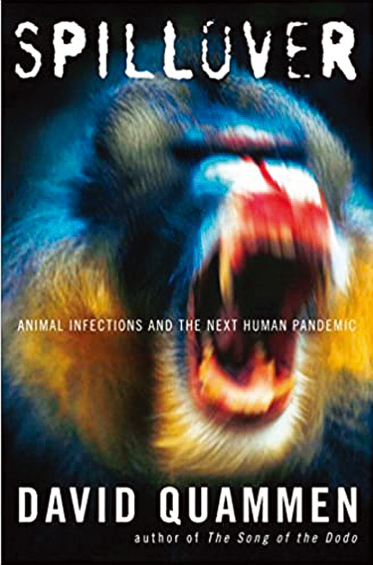Author slams political claims about virus


Knowledge is crucial as conspiracy theories hamper global pandemic fight
Claims that novel coronavirus was genetically engineered are not supported by evidence and are often politically motivated, says science writer David Quammen, who is calling for more robust global disease surveillance in order to prevent future pandemics.
Quammen, who has authored several books on viruses including Spillover: Animal Infections and the Next Human Pandemic, says that conspiracy theories distract from the complicated and essential task of identifying the origins of zoonotic diseases that jump from animals to humans.
"The origin is a very important question," Quammen told China Daily. "We need to understand which animals these viruses come from and how they spill over into humans in order to stop that and prevent further spillovers."
Quammen said that several studies from leading virologists have concluded that the novel coronavirus evolved naturally, ruling out the possibility that the virus was genetically manipulated in the lab.
"This is not a manmade virus," he said. "In some cases, the rumors are being thrown around, packaged as though to look like a scientific article. This sort of demonstrates the low cunning of the people who want to spread rumors."
"But then you look for what journal (the article) is from and, well, it's not from a journal," he added. "Who are the authors? Well, they say this is a group of anonymous authors who can't announce their names, because there would be reprisals against them. Well, that's not how science works. That's not science, that's political argument."
The World Health Organization has confirmed that the novel coronavirus belongs to a family of viruses that are found in bats. Quammen said that outbreaks of zoonotic diseases-or diseases that transfer from animals to humans-have become more prevalent as people increasingly disturb natural environments and come into contact with wild animals.
Quammen, who authored The Chimp and the River about the origins of HIV and Ebola: The Natural and Human History of a Deadly Virus, said that identifying the original source of zoonotic diseases can prove challenging. The Ebola virus, for example, was first isolated in the 1970s, and to this day researchers have yet to identify its exact reservoir species.
Quammen warned that more pandemics may follow without significant investment in global disease surveillance.
"There are things that can be done and should be done. And they're expensive, but they're not nearly as expensive as a pandemic," he said.
These measures include educating more infectious disease scientists and increased training in ecology, veterinary science, and virology in order to understand zoonotic diseases.
"We need a whole army coming out ready to deal with the question of how the natural world and humanity can fit together in a way that does not have to involve infectious disease emergencies," he said.
"I think disease surveillance is crucial. And that means having eyes and ears on the ground, people with at least a little bit of training so that they can recognize when there's a warning signal in their village or in their region," he added.

































